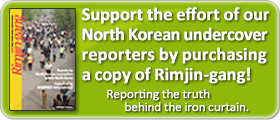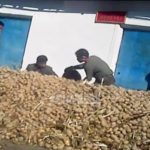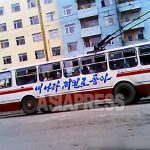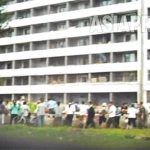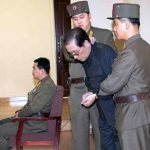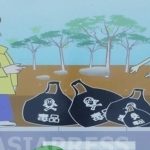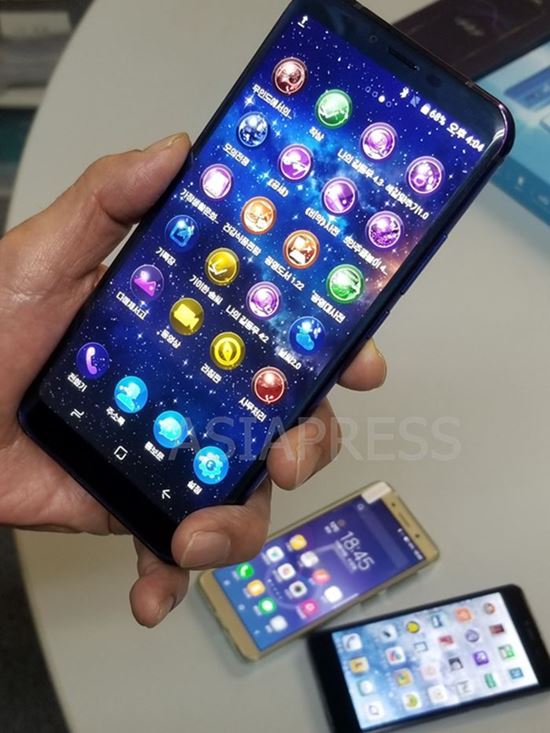
It is capable of taking photos and videos but is unable to connect to the Internet.
(ASIAPRESS)
◆Ignoring privacy in the name of "fighting non-socialism"
The Kim Jong-un regime is censoring the country's cell phones with unprecedented intensity as part of its "fight against non-socialist phenomena". This is to guard against the spread of foreign information through digital devices. (Kang Ji-won / ISHIMARU Jiro)
Related Articlefa-arrow-circle-right<Inside N. Korea> Strong Controls Begin on Individual Business Activities, Based on Kim Jong-un's Anti-Market Policy: Relentless Confiscation of Products and Eviction
The authorities want to see what's on your phone, and they inspect 'hand phones' (cell phones), not only at checkpoints in the city, but also in markets and workplaces. Police, secret police, and public officials are subject to such inspections as well.
This was reported in mid-April by a reporting partner living in the northern region of North Pyongan Province. Similar reports also came in from reporting partners in North Hamkyung Province and Ryanggang Province.
Censorship on cell phones began in the latter half of 2019, but the intensity increased dramatically around February this year, after the 8th Workers’ Party Congress held in January. What kind of approach is it? Our reporting partner in Ryanggang Province explains as follows.
"They check text messages, photos, and videos left on the phone. You know how people sometimes take family photos with their phones? They check all of that, and if they find anything slightly suspicious, they take the phone away and have it restored by a specialized equipment department, where they can even inspect previously deleted content."
There are two things that the authorities are suspicious of. Firstly, external cultural influences, including that of South Korea, that have become popular among young people in the past decade or so. Along with DVDs and USBs, mobile devices have become a medium of dissemination.
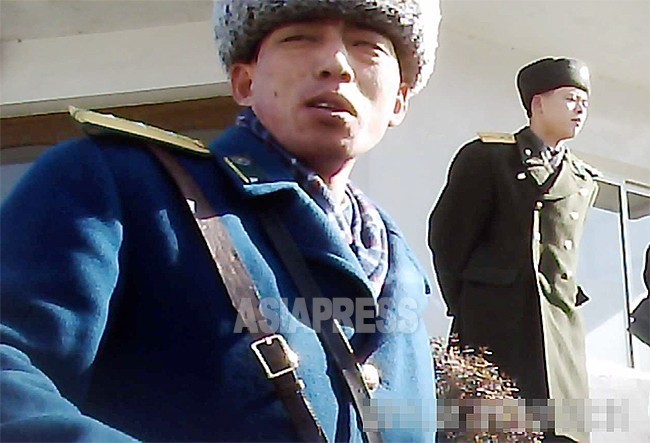
◆Wary of spreading disturbing information as economy worsens
Secondly, the distribution of information within the country. As a result of the blockade of China's borders in response to the coronavirus and strict movement controls within the country, the economic deterioration has been extremely serious, and some vulnerable groups have died of starvation and disease. Crimes such as theft, robbery, methamphetamine trafficking, and prostitution have increased. There is no way to know when the COVID-19 outbreak will be resolved, causing a sense of anxiety in society. This is why they are trying to monitor what kind of information the public is sharing and spreading.
Our reporting partner in Ryanggang Province explained, "A public notice was posted in the market, ‘Regarding the Elimination of Falsehoods.’ It says that disturbing the public sentiment or intentionally spreading lies is an act of helping the enemy, and that if you hear unconfirmed information, you should report it to the Security Bureau. Recently, riot police from the security bureau have been patrolling the market area with guns. Although they say they are maintaining public order, I think they are trying to scare the residents."
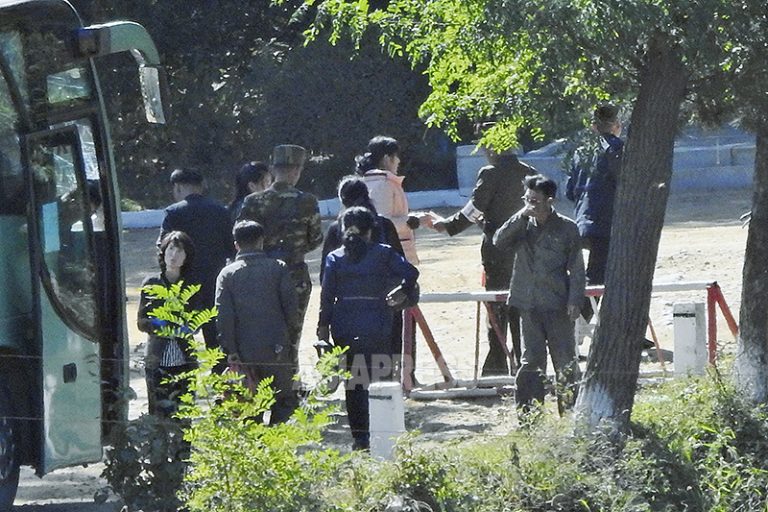
◆Monitoring young people who use South Korean language
Regulations for university students are also strict. Two to three times a month, the university inspects electronic devices, cell phones, and computers. The first thing to be checked is text messages to see if they are using "South Korean puppet words" in their communication with friends. Due to the influence of the spread of Korean dramas, South Korean-style language has taken root among young people, and the Kim Jong-un regime is extremely wary of it as a typical example of "enemy cultural infiltration."
"If they find any South Korean words in the messages, the security bureau (secret police) will intervene and check all of their electronic devices. In April, three students at a university in Ryanggang Province were arrested for using ‘puppet language.’ The university's Youth League took responsibility for the incident and barred them from receiving any awards for the next three years. The dean of the college was also held jointly responsible."
Our reporting partner explained the incident as follows:
◆Possible application of "law to eliminate reactionary ideology and culture?"
“Such strong censorship on cell phones naturally makes people feel defensive and frustrated. To avoid any trouble, more and more people leave their cell phones at home when they go out. Many prepare for the inspection by replacing their phone with that of their wife. There are also an increasing number of people protesting against the excessive censorship, saying that it is a violation of human rights to look inside people's cell phones.”
Still, censoring officials' cell phones is not so unusual. Our reporting partner explained as follows:
"In December last year, the "Law on the Elimination of Reactionary Thought and Culture" was enacted, which systematically strengthened the control of cell phones. Information exchange offices (IT equipment sales offices) and the Communications Management Bureau are required to thoroughly inspect cell phones when customers bring them in for repairs or to download applications. The computer must be equipped with a foreign information extraction software called the ‘barrier.’ The authorities explain that they censor and even conduct house searches without exception, even for officials, but the officials get along well with each other, and in the end only the ‘small fry’ are punished.”
Although the text of the "Law on the Elimination of Reactionary Thought and Culture" remains undisclosed, it stipulates that the maximum penalty for viewing or disseminating foreign videos or documents is death.
- Powerful nations fear the Internet. North Korea has a usage rate of less than 0.1%, the worst controlled country in the world. (ISHIMARU Jiro) (2021-04-19)
- <Inside N. Korea> “Coronavirus Comes from the Sea”: Impoverished Fishermen Forced to Sell their Ships to Survive (2021-04-14)
- <Inside N. Korea> Kim Jong-un Regime Orders Emergency Import of Medicine: Many Dead due to Collapse of Medical Care Under Coronavirus Restrictions (2021-04-12)
- <Inside N. Korea>Military Cuts (Part 1): Military service for men cut from 13 to 8 years... What are Kim Jong-un's intentions? (2021-04-02)
- <Inside N. Korea> Agricultural Materials in Short Supply as Farmers Predict Disastrous Harvest (2021-03-30)
Editor’s notes on North Korean reporters
ARCHIVE(pdf) >>
DPRK MAP >>
